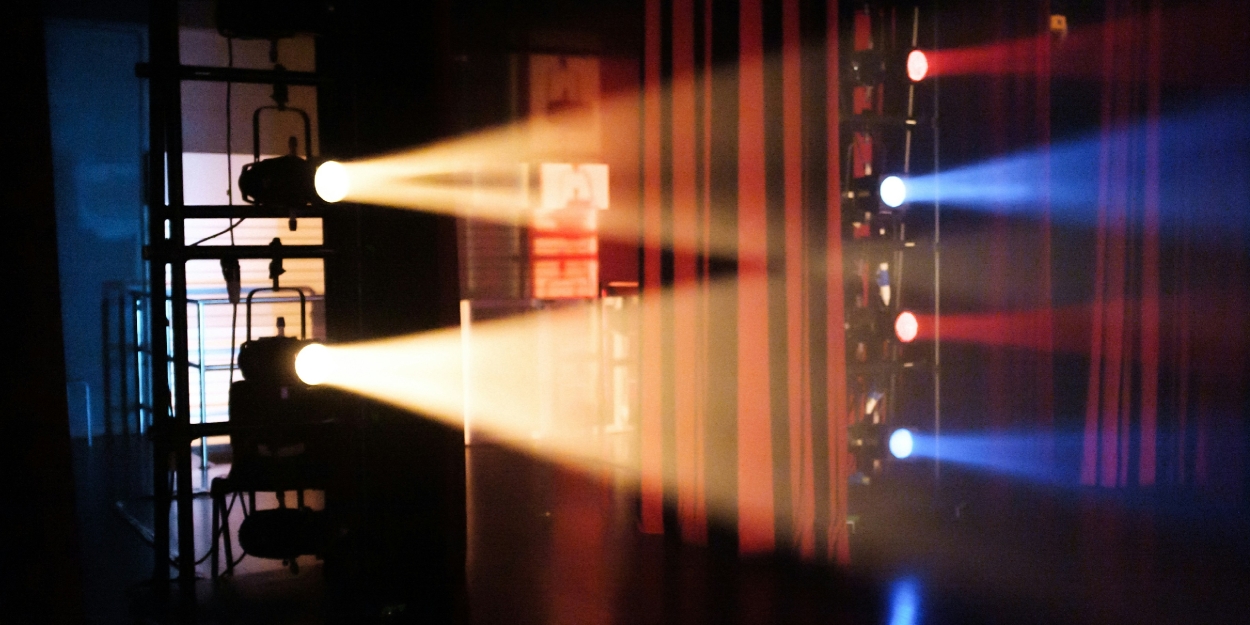Student Blog: Taking a Step Behind the Curtain
Lessons I learned while working behind the scenes.

As a younger performer, I thought the best thing I could do for my growth was get on stage. And reasonably so! It makes sense that more stage experience would help me reach my performance goals. But in reality, I learned just as many lessons about the theatre industry backstage. My experience behind the scenes taught me things about theatre productions that I would have never learned otherwise!
My first experience working behind the scenes was volunteering to operate a spotlight for a community theater production of “Grease” when I was 14 years old. When I joined the lighting booth on the first day of tech, I was intimidated. Operating a spotlight was out of my comfort zone as someone who was only used to doing the singing, dancing, and acting bit. During my time in the lighting booth, I learned many new things about the tech side of a show. First, I learned what it meant to “call a show.” Calling a show involves giving all of the lighting, sound, and sometimes backstage crew their cues. These cues involve when to turn on and off spotlights or microphones, when to switch light cues, and more. Typically a stage manager is responsible for calling the show. Since I was a young performer, I was not yet aware of all the communication that occurred in the booth and backstage for a show to run smoothly.
The lighting, sound, and backstage crew are also constantly solving new issues during the run of a show. While on the headset as a spotlight operator, I got to hear real-time troubleshooting and collaboration between all of the crew members. In several occasions, the crew is responsible for keeping the performance going when mistakes, accidents, or technical issues occur.
After spending time up in the booth, I worked on the stage crew for several productions at the same community theater. I was responsible for moving set pieces, preparing props, and assisting with quick changes. While on the crew, I got to experience some of the previously mentioned troubleshooting firsthand. One instance I distinctly remember is helping an actress hold together her dress with a scrunchie. Finding my footing and becoming comfortable on the stage crew also took some learning and adjustment. I quickly learned which methods and strategies for changing set pieces and quick changes worked and which ones didn’t. After I found my rhythm backstage, I genuinely enjoyed the hustle of keeping the show moving and all of the small details organized.
Working backstage has taught me many important lessons that have helped me grow as a performer. For example, I now know how to efficiently set up my quick changes. I also have a new respect for everyone working on the crew or in the booth of every show I do. By being a crew member myself, I now understand what kind of actor behavior helps and what behavior complicates the job of the crew.
Now as I look to see which college program I wish to attend, I am looking for programs that require their freshman to work as part of the crew on at least one production. I have experienced firsthand how being a crew member can create a more understanding, efficient, and cooperative performer. So colleges that require every actor to gain backstage experience are high on my list!
I encourage every actor who wishes to pursue theater to not wait until college to gain backstage experience. The more a performer understands every aspect of the theater, the better performer they will be. Additionally, stepping out of your comfort zone is always the first step to growth. Learning new skills, including lighting and sound, will make any performer more versatile and hirable. Never be afraid to reach out to your local community theater and volunteer to be a part of the lighting, sound, or backstage crew on their next production!
Videos


